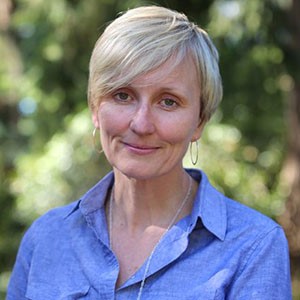
Being physically active is as good for the mind as it is for the body. In fact, the BC Provincial Health Authority recommends that people stay active during the COVID-19 pandemic to help support overall well-being.
In this webinar, we will explore the role that different types of physical activity play in improving stamina, resilience, sleep, cognitive function, and how we feel and think in our everyday lives. Learn how physical activity affects the brain and helps us manage stress and trauma. Discover professional approaches to starting or maintaining a physically active lifestyle in this time of physical distancing, uncertainty and seasonal change.
Presented in partnership with UBC Faculty of Medicine and UBC School of Kinesiology, Faculty of Education. This webinar is open to all.
Registration: Click Here.
This is the tenth webinar in our COVID-19 series. View the previous webinars here.
Questions? Please contact alumni.events@ubc.ca.
Moderator:

Kathryn Gretsinger, MJ’06 – Associate Professor of Teaching, UBC School of Journalism, Writing & Media; Director, Global Reporting Centre; Journalist; Senior Faculty Advisor to the UBC President. She is a longtime public broadcaster at the Canadian Broadcasting Corporation, with a record of creating award-winning work at the local and national level in Canada. Kathryn is also a Killam Teaching Prize winner and she was named as one of North America’s top innovative journalism educators in 2018.
In October 2019, Kathryn was named senior faculty advisor to President Santa Ono. In her new role, she advises him on how to tackle mental health challenges that exist on post-secondary campuses and is helping develop new initiatives around the issue. She has had a long-term interest in mental health, having written stories on mental health for a large duration of her journalism career.
Kathryn leads the School’s Integrated Journalism course, where students learn about professional practice, journalism skills and digital technologies. She also coordinates the internship program and supports students transitioning into professional practice. She has helped to place students in professional practicums across the country and around the world. As a key member of the Global Reporting Centre, she works as an instructor and producer for the annual Global Reporting Program projects and helps to shape conversations about local and global journalism. She is also an instructor for UBC’s unique Reporting in Indigenous Communities course.
There is a strong social justice undercurrent to Kathryn’s work. Her commitment to teaching, reporting and fostering dialogue about issues of social justice, Indigenous relations and mental health appear in the courses she teaches and key collaborations, including the National Student Investigative Reporting Network and her work with UBC’s mental health and wellness community of practice.
Experts:

Dr. Teresa Liu-Ambrose, BSc’94, MSc’98, PhD’04 – Professor, Canada Research Chair in Physical Activity, Mobility, and Cognitive Neuroscience, UBC Department of Physical Therapy, Faculty of Medicine; Lead of the Physical Activity for Precision Health Research Cluster.
Dr. Teresa Liu-Ambrose, PhD, PT, is a Professor in the Department of Physical Therapy, Co-Director of the Centre for Hip Health and Mobility, and Canada Research Chair in Physical Activity, Mobility, and Cognitive Health. Dr. Liu-Ambrose is an associate member of the Djavad Mowafaghian Centre for Brain Health. Dr. Liu-Ambrose’s research focuses on understanding the role of exercise in promoting cognitive and mobility outcomes in older adults. Her research findings have been implemented into clinical practice, community programs, and influenced international practice guidelines to promote healthy aging.
Dr. Liu-Ambrose is Lead of the Physical Activity for Precision Health Research Cluster at UBC. It is the mission of the cluster, in collaboration with community members, to develop, test, implement, and monitor physical activity programs that are tailored with precision to the varied needs of children and adults of varying demographics, capacities, and health statuses.

Dr. Eli Puterman, MA’04, PhD’09 – Assistant Professor, Canada Research Chair in Physical Activity and Health, Michael Smith Foundation for Health Research Scholar, UBC School of Kinesiology, Faculty of Education; Co-Lead of the Physical Activity for Precision Health Research Cluster
Dr. Eli Puterman is Assistant Professor and Canada Research Chair in Physical Activity and Health. His research seeks to understand the interplay among stress, aging, and exercise. Dr. Puterman is developing and tailoring intervention trials, supplemented with laboratory-based stress manipulations and ambulatory psychological assessments, to examine the effects of habitual physical activity on immune cell health (i.e. telomere biology, mitochondria biogenesis), epigenetic alterations and protein synthesis, autonomic and neuroendocrine stress reactivity, and ecologically assessed affective and cognitive reactivity.
Dr. Puterman is Co-Lead of the Physical Activity for Precision Health Research Cluster at UBC. It is the mission of the cluster, in collaboration with community members, to develop, test, implement, and monitor physical activity programs that are tailored with precision to the varied needs of children and adults of varying demographics, capacities, and health statuses.